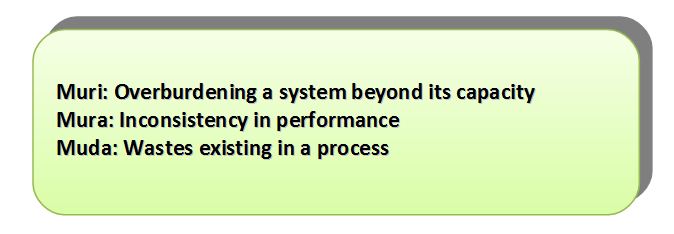Right from the day when organizations started to do ‘Mass Production’, there are a lot of improvements happening in the ways organizations manage their operations and interlinked processes. Organizations adapted to new methodologies and techniques to optimize the processes, reduce defects and cost and increase customer satisfaction.
New approaches became popular every day, some of which yielded long term success and some did not. Some companies adapted to these methodologies blindly without understanding the basic problem that led to the solution, and could not reap the same benefits. LEAN Production as it is called widely today also was based on one such innovation which originated in Toyota under a different name.
Toyota Production System was formulated in Toyota, for their own internal problems related to delivery time reduction and quality. It did not originate in a single day, rather it is a collection of various techniques used by Toyota over a period of time (Around 25 years) to overcome and solve its problems.
Toyota Production System is a way of operations that the company adapted to: Reduce the Takt time, reduce defects and cost, increase customer satisfaction, adherence to delivery schedules and increase value for price. Toyota Production system insists on reducing the three inefficiencies to attain the above objectives. They are:
TPS believes that the above three inefficiencies in the process leads to all kinds of problems like non-adherence to delivery time committed, longer cycle time of production, repeated defects occurring during production and the resulting corrective actions. These problems lead to both increased cost or time and reduce the value of products in the eyes of customers.
The goal and aim of the TPS was to reduce and eliminate Muri, Mura and Muda.
The below two methods forms the base of TPS to achieve its goals.
- Just In Time
- Jidoka – ‘Automation with human touch’
These two are considered the pillars of Toyota Production system.
Just-In-time Manufacturing
Just-In-time manufacturing is a concept where the entire production process gets initiated only when a customer places an order for a particular type of car. The order gets traversed to the initial step of production and even to the suppliers to replenish the stock that will be used by the car. The entire production system is aligned to just deliver the order(s) that are currently waiting. It is a huge turnaround from the traditional Mass Production and full utilization of resources.
It was inspired from the famous American supermarkets, where customer demands the product and the stores replenish the stock as and when a product is picked by the customer. This creates ‘Pull’ from the customer and thus reduces wastes in terms of raw materials, supply chain, unnecessary waiting time, produced stocks waiting to be sold etc. Other companies took a lot of time to understand the basic concept and then replicate it. The ‘Just in time’ concept is now adapted worldwide by all organizations, at least automobile manufacturers.
Jidoka (Autonomation)
‘Jidoka’ means ‘Automation’ in Japanese language. In Toyota they used this term to indicate that the systems need to be automated to highlight and attract attention to any deviations/defects originating in the production process. Thus the machines were automated to identify and stop immediately when a defect or deviation occurs in the products or parts of the product. Thus Toyota had an inbuilt Quality monitoring system and the additional quality control steps are limited and reduced. This helped them to identify and correct mistakes then and there and deliver a completely defect free product to the customer.
Apart from the above two methods there are a list of other methods that we already know: Kaizen (Continuous Improvement), Visual Control, Total Productive Maintenance, Standardized work, etc. which added value to this robust proven system.
With the help of this world class system, Toyota was able to achieve:
- Inherent Quality in its products
- Optimum cost of manufacturing
- On time and reduced delivery time
And above all it is due to the TPS that Toyota is one of the top players and a renowned automobile manufacturer today.


